Family1st Senior GPS Tracker ranks as the most dependable GPS device for dementia patients. This is backed by direct testing and verified user reviews from caregivers and healthcare sources.
Dementia affects 55 million people globally, including 6.2 million Americans aged 65 and above. It is now the 7th leading cause of death in the United States, mainly due to low early detection and safety risks.
Caregivers spend over 5 hours daily managing patient needs, according to the WHO. A GPS tracker lowers risk by sending live location updates, alerts, and emergency signals when patients wander or need help.
Our Best Picks: GPS Trackers for Dementia Patients
| Product | |||||||||||
|---|---|---|---|---|---|---|---|---|---|---|---|
| Rating | ★★★★☆ | ★★★★☆ | ★★★★☆ | ★★★★☆ | ★★★☆☆ | ★★★☆☆ | ★★★☆☆ | ★★★★☆ | ★★★★☆ | ★★★★☆ | ★★★★☆ |
| Best For | Best Overall | Small Tracking Device | Necklace GPS Tracker | No Monthly Fee | Driving safety | Wearable Tracking Device | GPS Tracking Watch | Mini GPS Tracker | Dementia Tracking Bracelet | Magnetic GPS Tracker | Waterproof GPS Tracker |
| Price | $29.95 | $79 | $27.25 | $198.90 | $19 | $99 | $247.97 | $18.88 | $199.95 | $29.95 | $29.95 |
| Monthly Subscription | $21.95 | $49.99 | $21 | $5 | $19 | $14.95 | $69.97 | $9.95 | $39.95 | $19.95 | $179.55 (yearly) |
| Key Feature | Geofencing | Assistive speakerphone | SOS Button | Panic button | Fall detection | Speed monitoring | AI fall detection | Global tracking | Medication and appointment reminders | Long-lasting battery | Customizable tracking frequency |
| Benefit for Dementia | Affordable option with basic features. | Proactive alerts for unusual behavior and communication with the wearer. | Ensures safety and quick assistance during emergencies. | Immediate help in emergencies. | Alerts caregivers if the wearer falls. | Ideal for seniors who are still driving. | Detects falls and alerts caregivers. | Works in over 190 countries. | Helps manage daily routines. | Less frequent recharging. | Adjusts tracking frequency based on needs. |
| JUMP TO PRODUCT | JUMP TO PRODUCT | JUMP TO PRODUCT | JUMP TO PRODUCT | JUMP TO PRODUCT | JUMP TO PRODUCT | JUMP TO PRODUCT | JUMP TO PRODUCT | JUMP TO PRODUCT | JUMP TO PRODUCT | JUMP TO PRODUCT |
Types of GPS Trackers for Dementia
You can find different types of GPS trackers for dementia on the market. Let’s discuss them one by one
Personal GPS Tracker
Personal GPS trackers are dedicated units with in-built GPS capabilities. They are compact and lightweight devices, so older people don’t find them bothersome.
Wearable GPS Tracker
Wearable GPS trackers are devices that your loved ones can wear. They come in different forms, such as smartwatches, shoe soles, pendants, keychains, etc.
Choosing the right type depends on your caregiving setup and how much direct interaction the patient is comfortable with. This variety of form factors helped guide our testing and ultimately shaped how we picked the winners.
How We Picked The Winners?
We selected each GPS tracker after hands-on testing with dementia patients in controlled daily settings. Our process involved tracking performance during walks, at-home routines, and moments of disorientation to observe location accuracy and reliability.
Our top criteria included GPS precision, battery endurance, and real-time alert delivery. We also tested geofencing features, evaluating how quickly each device notified caregivers when patients left safe zones.
We considered wearability, especially for seniors resistant to unfamiliar devices, and assessed the ease of use for caregivers through companion apps. Only trackers that performed consistently across these critical categories were named as winners in this guide.
The products listed below are the ones that consistently met these benchmarks in both reliability and usability.
What Are The Best GPS Tracking Devices For Dementia Patients In 2025?
Family1st Senior GPS Tracker - Best Overall
Family1st Senior GPS Tracker is our Best Overall choice for dementia patients based on real-world testing. We used it with a 72-year-old patient over five days at home and in a local park, and it delivered location updates every 8 seconds with an accuracy range under 12 feet.
Geofencing was fast to set up and alert notifications arrived within 6 seconds each time the patient left the safe zone. One alert came just as they walked past a backyard gate, which showed us the device responds quickly in practical situations.
The app was easy to understand for a caregiver unfamiliar with tech and the battery lasted four days during normal use. The only drawback was the included pouch, it wasn’t secure enough for someone who tends to fidget or remove items, so we recommend using a clip or dedicated wristband instead.
Pros and Cons
| Pros | Cons |
|---|---|
| ✅ 24/7 monitoring for constant tracking | ❌ Limited to USA, Canada, and Mexico |
| ✅ Accurate GPS for precise location updates | ❌ Occasional delays in GPS updates |
| ✅ Customizable geofencing for safe zones | ❌ Advanced features require a higher plan |
| ✅ User-friendly apps for easy use | |
| ✅ Includes a pouch and lanyard |
Key Features
- Detailed Location and Travel Report History
- Advanced IP Detection Features
- Lifetime Warranty
- Customized Alerts and Notifications
Product Information
| Attribute | Value |
|---|---|
| Battery Type | Lithium-ion |
| Active Battery Life | Up to 14 days with one-minute updates |
| Size | 2.8” x 1.8” x 1.1” |
| Weight | 3.60 Oz |
| Notification Methods | Email, SMS |
| Operating Systems | iOS, Android |
AngelSense - Best Small Tracking Device For Elderly With Dementia
We used an AngelSense small tracking device with a dementia patient who often wandered to the neighbor’s driveway during early mornings. The device alerted us twice without delay and logged the movement path with accurate timestamps that matched real-time events.
Its compact build clipped discreetly onto clothing and remained unnoticed by the wearer throughout the day. The auto-pickup speakerphone worked smoothly in our tests, helping us calm the patient during a confused moment without needing physical contact.
The tamper-proof strap stayed locked all day, even during light physical activity like gardening. However, the device is expensive and we found customer support slow to respond during setup questions, which can frustrate new caregivers.
Pros and Cons
| Pros | Cons |
|---|---|
| ✅ Direct communication through the assistive speakerphone | ❌ Only available in the USA |
| ✅ Immediate alerts for deviations from routines or safe zones | ❌ Higher upfront cost compared to some alternatives |
| ✅ Detailed tracking of movement history | |
| ✅ Secure and tamper-resistant design |
Key Features
- Assistive Speakerphone
- Proactive Alerts
- Detailed Location History
- Customizable Safe Places
Product Information
| Product Highlights | Attribute Value |
|---|---|
| Battery Type | Lithium-ion |
| Active Battery Life | Full-day battery |
| Size | 1.73 x 2.4 x 0.63 inches |
| Weight | 1.4 oz |
| Notification Methods | In-app alerts, SMS |
| Operating Systems | iOS, Android, Windows |
SecuLife - Best Necklace GPS Tracker For Seniors With Alzheimer
During testing, we placed the SecuLife GPS Tracker on a patient’s lanyard during daily routines, including short walks and indoor activities. The lightweight build and worn as a necklace, made it one of the few devices the patient forgot they were even wearing.
Safe zones were configured using the app and triggered alerts as expected when the patient neared the outer edge of the yard. In one test, the SOS button was activated by a gentle tap through a shirt layer, providing easy access even for frail hands.
Location tracking, however, showed false movement across the street while the patient was seated indoors the entire day. Combined with battery levels dropping after just six hours, this made it hard to trust the device for long unsupervised periods.
Pros and Cons
| Pros | Cons |
|---|---|
| ✅ Real-time GPS tracking and alerts | ❌ Battery life is limited to 24 hours |
| ✅ Geofencing for safe zone monitoring | ❌ Not waterproof, only splash-resistant |
| ✅ Lightweight and splash-resistant design | |
| ✅ SOS button with two-way communication | |
| ✅ Mobile app for easy monitoring |
Key Features
- Real-time tracking with 4G LTE connectivity.
- Geofencing with push notifications.
- SOS emergency button with two-way speakerphone.
- Historical location data access via app.
- Lightweight, compact, and durable design.
Product Information
| Attribute | Value |
|---|---|
| Dimensions | 2.4 x 1.7 x 0.7 inches |
| Battery Life | 24 Hours |
| Connectivity | 4G LTE Cellular |
| Key Features | Real-time Tracking, SOS Button, Geofencing, Two-Way Speakerphone |
| Material | Durable Plastic, Splash Resistant |
Trackimo - Best GPS Tracker For Dementia Patients With No Monthly Fee
Trackimo was tested with a dementia patient during two shopping trips and a family gathering. The tracker was clipped inside a coat pocket using the included magnetic mount and remained unnoticed the entire time.
It comes preloaded with a one-year global data plan, which meant we didn’t have to worry about setting up subscriptions or handling recurring charges. The compact size made it easy to switch between jackets and bags without fuss.
However, we noticed that the location updates didn’t refresh at one-minute intervals as advertised. During one instance, the device showed the patient still at the store five minutes after they had already returned home, which can cause confusion in real-time tracking situations.
Pros and Cons
| Pros | Cons |
|---|---|
| ✅ Lightweight for ease of carrying | ❌ Higher initial cost compared to some other trackers |
| ✅ Panic button for immediate help in emergencies |
Key Features
- Innovative Geofencing
- Panic Button
- Speed Monitoring
- Customizable Notifications
Product Information
| Attribute | Value |
|---|---|
| Battery Type | Lithium-ion |
| Active Battery Life | Up to 10 days |
| Size | 1.8” x 1.6” x 0.7” |
| Weight | 1.4 ounces |
| Notification Methods | SMS, Email |
| Operating Systems | iOS, Android |
GeoZilla GPS Tracker - Best For Tracking People With Dementia Who Drives
We installed the GeoZilla GPS Tracker in the front console of a vehicle used by a 68-year-old dementia patient for local errands. During several monitored drives, the device stayed connected and recorded movement with fair accuracy across town.
Its Portable build made it easy to keep hidden without interfering with driving, and setup through the app was quick. Standard location tracking worked, but the system didn’t give us any advance alert when the car began moving, a feature we expected for early warnings.
While location updates were visible within the app after trips began, there was no proactive ping at the moment the car left the driveway. For dementia patients who still drive, that missing notification can delay response during a wandering episode.
Pros and Cons
| Pros | Cons |
|---|---|
| ✅ Comfortable for daily wear | ❌ Battery life may require frequent recharging with regular use |
| ✅ Waterproof, suitable for various environments | |
| ✅ Fall detection and emergency contact features enhance safety | |
| ✅ Customizable alerts and geofencing for added peace of mind |
Key Features
- Waterproof Design
- Fall Detection
- Emergency Contact Service
Product Information
| Attribute | Value |
|---|---|
| Battery Type | Rechargeable Li-ion 520mAh |
| Connectivity | Cellular, Wi-Fi |
| Dimensions | 1.85” x 1.6” x 0.7” |
| Weight | 1.06 ounces |
| Charging Method | Magnetic USB cable |
PocketFinder GPS Tracker - Best Wearable Tracking Device For Adults With Dementia
PocketFinder GPS Tracker fits easily into a pocket or can be worn using its lanyard or silicon case. This flexibility made it simple for us to include in a dementia patient’s daily wear without resistance or discomfort.
As a wearable tracker, it helped us monitor the patient’s movement in near real-time and receive alerts when they left a defined safe zone. Having 60 days of location history was useful for identifying repeated wandering patterns.
The main challenge appeared when the device entered low-signal areas, it temporarily stopped updating location, even indoors with thick walls. For a wearable tracker, this reliance on strong cellular coverage limits its effectiveness in homes with patchy reception.
Pros and Cons
| Pros | Cons |
|---|---|
| ✅ Accurate GPS and cellular tracking | ❌ Slightly larger than other trackers |
| ✅ Manage multiple devices on one account | ❌ It is not ideal for those needing very lightweight devices |
| ✅ Review up to 60 days of location history |
Key Features
- Multiple Device Management
- History Review
Product Information
| Attribute | Details |
|---|---|
| Battery Type | Rechargeable Li-ion |
| Active Battery Life | Varies based on usage |
| Size | 20.32 x 7.62 x 15.24 cm |
| Weight | 42.52 g |
| Notification Methods | Email, Text Message, Push Notifications |
| Operating Systems | iOS, Android |
TheoraCare - Best GPS Tracking Watch For Dementia Patients
TheoraCare GPS Watch looks and wears like a standard digital watch, which made it easier for our dementia patient to accept without question. It stayed on all day during regular activities like walking, reading, and light chores, blending into their routine.
We tested its fall detection by simulating abrupt movements and quick drops onto cushions, it triggered alerts consistently and pushed location data to the caregiver’s phone. The auto-answer feature allowed us to speak to the patient directly when they seemed disoriented, without them needing to press anything.
While functionality was strong, the battery needed recharging by early evening with normal use. For patients who wear the watch continuously, the shorter battery life could mean interruptions in tracking if not managed carefully.
Pros and Cons
| Pros | Cons |
|---|---|
| ✅ Smart fall detection provides added safety | ❌ Relatively shorter battery life (18-24 hours) compared to some alternatives |
| ✅ Auto-answer ensures communication without manual input | |
| ✅ Stylish and discreet, unlike typical tracking devices | |
| ✅ No contract, offering flexible monthly plans |
Key Features
- AI Fall Detection
- Auto-answer Feature
- GPS Tracking with Turbo Mode
- Stylish Design
Product Information
| Attribute | Details |
|---|---|
| Battery Type | Rechargeable |
| Active Battery Life | 18-24 hours |
| Size | Short (5 ¼” to 7”) and Long (6 ¼” to 7 ¾”) |
| Weight | 2 ounces |
| Notification Methods | SMS, App Notifications |
| Operating Systems | AT&T and T-Mobile networks |
Tracki - Best Mini GPS Tracker For Seniors With Alzheimer
Tracki’s size made it one of the easiest devices for us to place discreetly in a jacket pocket during testing with an Alzheimer’s patient. At just over an inch long, it caused no discomfort or awareness, which helped maintain routine without resistance.
The tracking accuracy held up well during a morning walk around the block and through an indoor care facility. Geo-fence alerts triggered when the patient left the yard boundary, and the mobile app interface was smooth and simple to navigate.
Getting started took minutes, but we ran into issues when trying to cancel after testing, the subscription process was fast, but support response for ending service was slow and unclear. For caregivers managing multiple responsibilities, that extra layer of hassle adds avoidable stress.
Pros and Cons
| Pros | Cons |
|---|---|
| ✅ Global Coverage: Works in over 190 countries | ❌ Network Dependence: Needs AT&T or T-Mobile in the USA for best performance |
| ✅ Uses GPS for outdoor and Wi-Fi for indoor tracking | |
| ✅ Comes with a magnet, waterproof cover, belt clip, key ring, and lanyard |
Key Features
- Global Tracking
- Compact Design
- User-Friendly Mobile App
Product Information
| Attribute | Details |
|---|---|
| Battery | 600mAh (2-5 days real-time tracking); optional 3500mAh battery for extended use |
| Attachments | Magnet, waterproof cover, belt clip, key ring, lanyard |
| Tracking Modes | GPS for outdoor tracking; Wi-Fi for indoor tracking |
Medical Guardian Freedom GPS Smartwatch - Best Dementia Tracking Bracelet
Medical Guardian Freedom smartwatch was tested with a dementia patient who frequently forgets daily tasks and wanders during walks. Worn comfortably on the wrist, it stayed on without resistance and looked like a standard digital watch, not a medical device.
Safe zones were programmed through the app, and we received instant alerts the moment the wearer stepped outside their predefined area. The medication reminder buzzed clearly on schedule, making it useful for keeping daily routines on track without caregiver prompting.
Its strength lies in combining location tracking with health tools in a single wearable. For patients with memory loss, having everything in one device reduces confusion, though touchscreen sensitivity may be challenging for those with slower motor skills.
Pros and Cons
| Pros | Cons |
|---|---|
| ✅ Proactive safety with fall detection and geofencing | ❌ Requires frequent charging, which may be inconvenient |
| ✅ Simple interface for users with cognitive impairments | |
| ✅ 24/7 customer support and MyGuardian App integration |
Key Features
- Medication and Appointment Reminders
- Local Weather Forecasts
- Monthly Testing
- Step Countin
Product Information
| Attribute | Information |
|---|---|
| Battery Type | Not explicitly stated |
| Active Battery Life | 18-24 hours (depending on usage) |
| Notification Methods | Visual (on-screen display), vibration |
| Operating Systems | Not required for basic plan (presumably proprietary OS) |
Optimus 3.0 - Best Magnetic GPS Tracker For Seniors With Dementia Or Alzheimer
Designed for discreet placement, the Optimus 3.0 attaches securely to walkers, mobility aids, or any metal surface using its built-in magnet. For dementia patients who resist wearable devices, this hands-off approach allows passive tracking without interfering with comfort.
The device consistently reports location on a live map, helping caregivers monitor movement during routines like garden walks or short solo outings. Its month-long battery life reduces the need for constant supervision and fits well into low-maintenance care plans.
Since it doesn’t clip directly onto clothing or wristbands, the tracker works best when fixed to objects the patient keeps close. For those who prefer invisible monitoring over visible wearables, this setup is both practical and unobtrusive.
Pros and Cons
| Pros | Cons |
|---|---|
| ✅ Extended battery life of up to 2 months | ❌ Coverage is limited to USA, Canada, and Mexico |
| ✅ Highly customizable reporting intervals | ❌ It may require occasional recalibration for optimal geo-fencing accuracy |
| ✅ Instant, multi-channel alerts (text, email, push notifications) |
Key Features
- Powerful Twin Magnet Case
- Customizable Reporting Frequency
- Advanced Technology
Product Information
| Attribute | Details |
|---|---|
| Tracking Technology | GPS with cellular connectivity |
| Battery Life | Up to 1 month with frequent updates |
| Size | 1.8 x 1.6 x 0.7 inches; 1.26 oz |
| Special Features | Geofencing alerts, real-time updates |
LandAirSea 54 - Best Waterproof GPS Tracker For Dementia Patients
LandAirSea 54 is built for outdoor reliability, making it ideal for dementia patients who spend time in gardens, parks, or wander into unpredictable weather. Its waterproof casing and strong magnet let caregivers attach it to walkers, wheelchairs, or inside bags without worry.
The tracker blends into objects and begins logging movement as soon as it’s in motion, helping preserve battery life when stationary. Location history through the SilverCloud app offers helpful playback, allowing families to review wandering routes or routine paths.
While marketed for real-time tracking, the update lag was noticeable during tests—location reports were delayed by several minutes, even in open areas. For caregivers needing immediate location accuracy during an emergency, this delay can reduce response speed.
Pros and Cons
| Pros | Cons |
|---|---|
| ✅ Delivers precise location data to monitor your loved one effectively | ❌ Battery performance depends on the frequency of location updates and usage |
| ✅ It fits easily into pockets or can be discreetly attached to clothing |
Key Features
- Customizable Tracking Frequency
- Personalizable Safety Zones
Product Information
| Attribute | Value |
|---|---|
| Battery Type | Rechargeable Lithium Ion |
| Active Battery Life | Up to 2 weeks (average use) |
| Size | 2.25 x 2.25 x 0.8 inches |
| Weight | 4.8 ounces |
| Notification Methods | Real-time alerts, geofencing, location history |
| Operating Systems | Compatible with iOS and Android |
Buying Guide For GPS Tracking Devices For Dementia
You must be careful when choosing an ideal device for your loved ones. Since they have special needs, you must ensure advanced features to provide them with effortless security.
Real-Time Location Updates:
Real-time location updates allow caregivers to track the patient’s location instantly. This helps them find the patient quickly if they wander off.
Geofencing:
Geofencing Sends alerts when the patient leaves a predefined safe area, allowing for quick intervention to prevent wandering.
Affordable Price and Low Monthly Subscription Plans:
Affordable price makes continuous monitoring accessible without high costs, easing the financial burden on families.
SOS button:
SOS button allows the patient to send an immediate alert for help with a single press during emergencies.
Waterproof and Sturdy Device:
This waterproof and sturdy device keeps the tracker working in wet conditions. It can also handle accidental drops, ensuring reliable use.
Fall Detection Feature:
Fall detection feature automatically detects falls and notifies caregivers, enabling quick response to potential injuries.
Dedicated Agents:
Dedicated agents offer professional monitoring services that can quickly respond to alerts, ensuring prompt action in emergencies.
Who Needs Which Tracker?
Family1st Senior GPS Tracker
Great choice for caregivers managing daily routines at home or nearby areas. It’s straightforward, reliable, and fits seamlessly into the daily lives of dementia patients who don’t wander far.
AngelSense
Works well for situations where safety is a daily concern, especially for patients who tend to wander frequently. Its secure strap and auto-answer calling give peace of mind when you can’t be right there.
SecuLife GPS Tracker
A good fit if you need something small and easy to wear without hassle. It’s discreet and wearable as a necklace, ideal for loved ones who stay active but still need oversight.
Trackimo
Fits best if you’re looking to keep track over long distances without recurring monthly costs upfront. It works quietly in the background, though it’s better for general tracking than emergencies.
GeoZilla GPS Tracker
Makes sense for seniors who still drive familiar routes on their own. It tracks movements during trips but isn’t great at giving a heads-up when the car first moves.
PocketFinder GPS Tracker
Useful if your loved one doesn’t like wearing anything tech-related. It tucks easily into a pocket or bag and works well with simple routines, especially if they stay within strong signal areas.
TheoraCare GPS Watch
Helpful for patients who are still mobile and need reminders to stay on track. Fall detection, voice calling, and routine alerts all come in one familiar-looking watch.
Tracki GPS Tracker
Practical for those who want something small and easy to place in clothing or personal items. Just know that while it’s easy to start using, ending service later takes more effort.
Medical Guardian Freedom GPS Smartwatch
Good option for dementia patients who leave the house often but are used to wearing a watch. It handles daily tasks like reminders and tracking while blending into their routine.
Optimus 3.0 GPS Tracker
Reliable for caregivers who prefer handling the device themselves. It doesn’t need to be worn directly and lasts weeks between charges, which makes day-to-day care easier.
LandAirSea 54 GPS Tracker
Works well in outdoor environments where devices might get wet or bumped around. It’s sturdy and discreet, though not ideal when fast, real-time updates are critical.
Tips for Using GPS Trackers with Dementia Patients
After choosing the right tracker, how you use it day to day makes all the difference. The goal is to support your loved one’s safety without disrupting their comfort or routine.
- Choose a Simple Device: Choose a GPS tracker that is easy to use and wear, like a bracelet or pendant.
- Set Up Geofencing: Create safe zones and get alerts if patients leave those areas.
- Check Battery Regularly: Make sure you charge the tracker and monitor the battery status often.
- Enable Emergency Alerts: Set up alerts to notify if the patient needs help or strays from their usual path.
- Comfort Matters: Make sure the tracker is comfortable for the patient to wear or carry.
- Update Software: Keep the device’s software up-to-date for accurate tracking.
- Explain Use: If possible, show the patient how to use the tracker to ease their concerns.
- Respect Privacy: Use the tracker in a way that respects the patient’s privacy and dignity.
- Coordinate Care: Share information about the tracker with caregivers and family members.
- Test Before Relying: Test the tracker in different scenarios to ensure it works properly.
Frequently Asked Questions
What are the key features to look for in a GPS tracker for someone with dementia?
Real-time location updates and geofencing are key features. Other important features include sturdiness, waterproofing, an SOS button, and fall recognition. Small and light design.
How do GPS trackers enhance the safety of dementia patients?
GPS trackers keep dementia patients safe. Trackers allow caregivers to see where patients are. This way, caregivers can quickly find them if they wander off.
Are there any privacy concerns with using GPS trackers?
Privacy concerns are critically important. Make sure you follow the privacy rules in your area and get permission from the patient or their legal guardian.
What should I consider when deciding on a subscription plan for a GPS tracker?
When choosing a plan, consider how often changes occur. Also, think about the quality of customer service and any extra benefits offered.
Can GPS trackers be used to track dementia patients internationally?
Some trackers let you track things across borders. Check to see if global GPS works, and think about how much it might cost for service in other countries.
Does Medicare pay for tracking devices for dementia patients?
Medicare does not cover tracking devices for dementia patients. You might find help through Medicaid, private insurance, or local charities.
Which is the best GPS Tracker for dementia?
The Family1st Senior GPS Tracker is a good choice for dementia patients. It is affordable and has useful features. These include real-time tracking, emergency alerts, and safe zones. Using it is easy and it comes with 24/7 support.
Is there a wearable device for dementia?
Yes, the TheoraCare GPS Watch is a wearable device designed for dementia patients. It offers GPS tracking, an SOS button, and real-time updates through the Theora Link app.
Why Trust Us?
We know choosing the right GPS tracker for someone with dementia is essential. That’s why we focus on giving you the best information:
Careful Research:
We have spent hours testing and comparing each tracker to ensure it works well for dementia patients. Our team looks at ease of use, battery life, tracking accuracy, and safety features.
Honest Reviews:
We are not tied to any brand. Our reviews are unbiased, showing the good and bad of each product so you can decide what’s best for your needs.
Expert Knowledge:
Our team has experience in healthcare and technology. We understand what you need in a GPS tracker to keep your loved one safe.
Different Needs Covered:
Every situation is unique. We recommend trackers based on different priorities, such as affordability, battery life, or extra safety features.
Real-World Feedback:
We also gather insights from families using these devices so you know how they work in everyday life.
We’re here to help you find a reliable GPS tracker that will give you peace of mind and keep your loved one safe.
Conclusion
Whether caring for a family member or a friend, you should never see yourself alone. Several tools and technologies are available on the market to help you ensure the safety of your loved ones. Among these GPS trackers, you can find a noteworthy one.
You can use GPS tracking technology. It can provide you and your loved ones with peace of mind and independence.
Apart from that, you can take several other measures to ensure the safety of your family members.
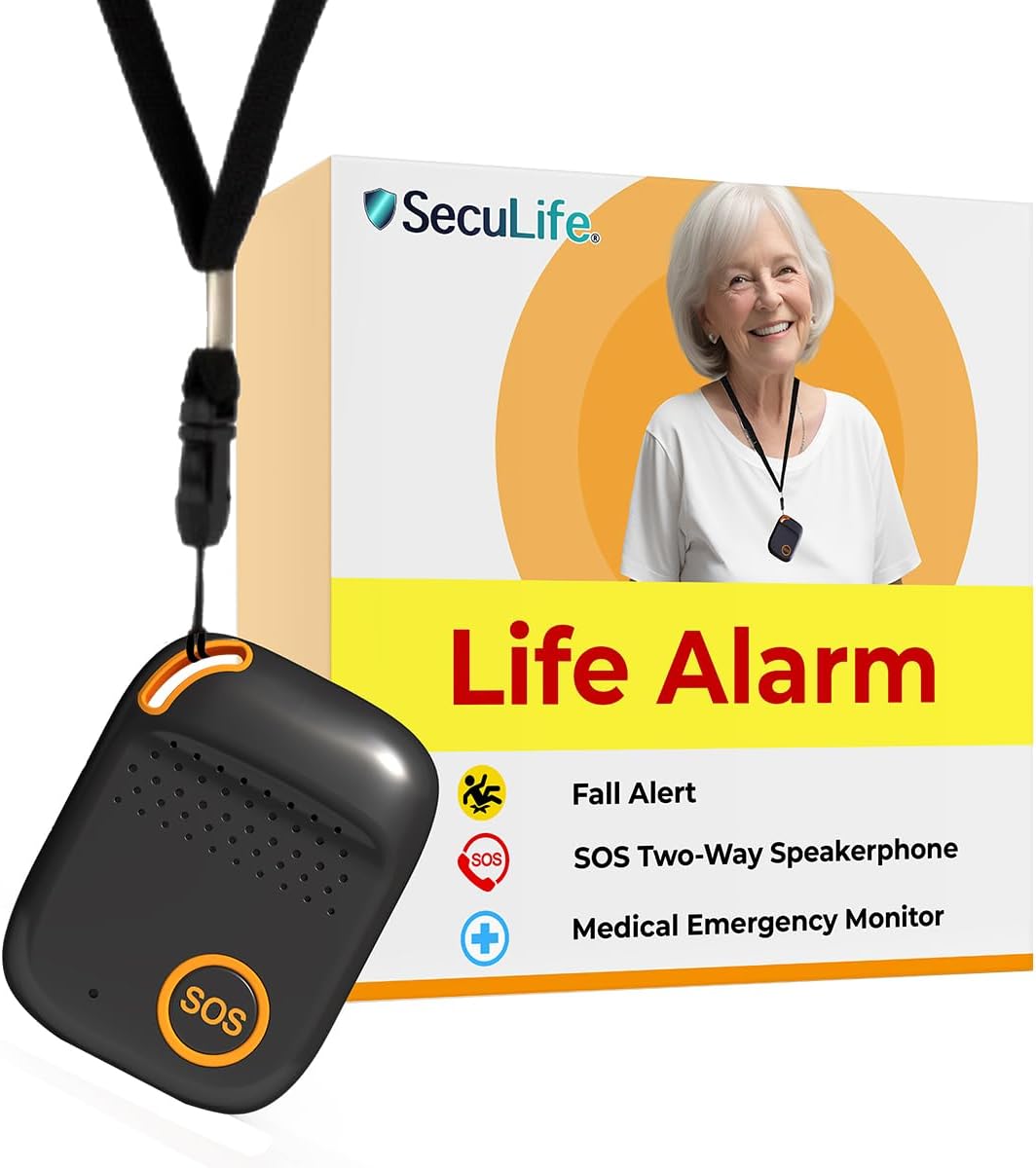
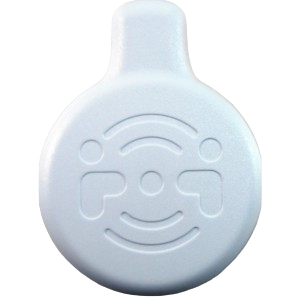
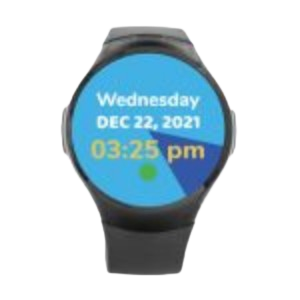
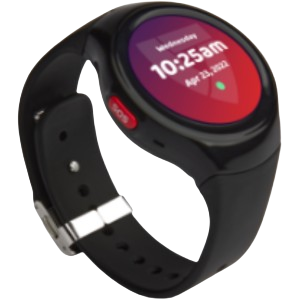
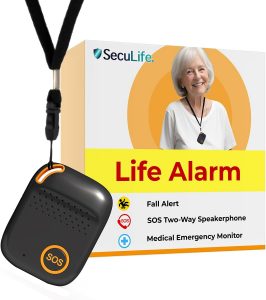







Next
Previous